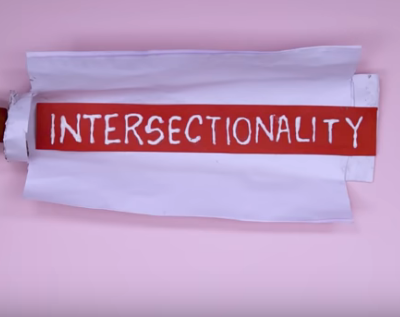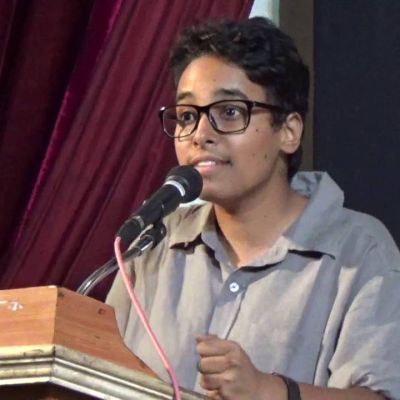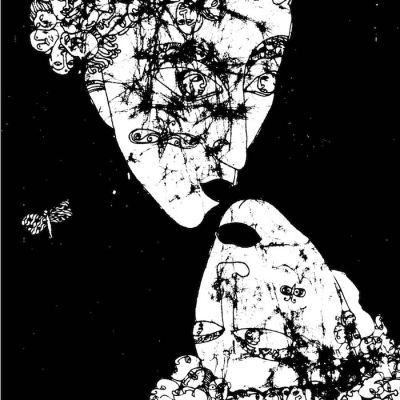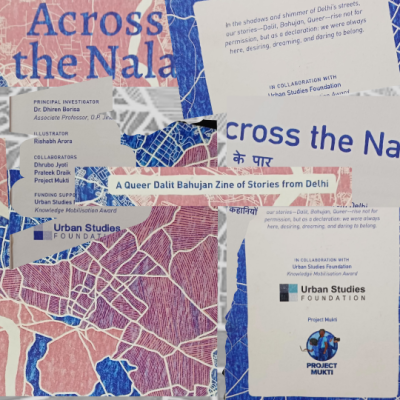caste
शहरी स्थानों को पुनः प्राप्त करने के लिए, सार्वजनिक स्थानों पर प्यार और रोमांस की पुलिसिंग या निगरानी के कई पहलुओं को देखना महत्वपूर्ण है
हमें इस तरह से ढाला गया है कि तथाकथित ‘विकल्प’ जो हमारे संबंधों को परिभाषित करते हैं, वे भी हमारे लिए हुए विकल्प नहीं बल्कि समाज द्वारा सृजित हैं। हालाँकि, जैसा कि हमने देखा है, इन सभी चुनौतियों के बावजूद, महिलाएँ, जब वे खुद को व्यक्तियों के रूप में महत्वपूर्ण मानने लगती हैं, तो वे अपने परिवेश और परिवार के सदस्यों के साथ बातचीत करने की रणनीति तैयार करती हैं।
सेक्स वर्क को जलवायु परिवर्तन के नज़रिए से कम ही देखा जाता है, लेकिन इस संबंध को समझना ज़रूरी है
When the land fails to feed, the city becomes both hope and trap.
If feminism is about fighting for equality, then how can we ensure that our feminism is truly inclusive and equal? Does it feature only a certain kind of voice or experience, and not take into account the multiple axes of oppression that another group of people may face?
Is Brahminical patriarchy present in queer spaces? How can marginalised groups effectively advocate for themselves without relying too heavily on…
I still remember my early childhood days when we used to get lessons on caste in our day-to-day lives. Coming…
A deeply entrenched issue in Indian society, the monster of caste, as Dr. Ambedkar called it, derides, tramples upon, rips…
This article explores how women are constructed as a ‘space’ manufactured by men to seek comfort, but void of having any active agency or participation in that space itself. I seek to bring this out in this article by drawing a parallel between the nineteenth century ‘Bharat Mata’ (Mother India) and the depiction of the twenty-first century ‘heroine’ in Bollywood movies.
Kamal Hassan has come to be quite a literal poster boy of all anti-caste memes lately. To reminisce about the…
Could it be that other changes in our lives make it even more difficult to conceive the desire of the ‘other’, specifically of those with whom we don’t share as many conversations, with whom we’ll soon, I expect, lose entirely the ability to speak?
Dalit women are primarily viewed as victims and survivors of various kinds of violence. Reification of the Dalit identity has led to the boxing of our existence whose dimensions are solely defined by the savarna (dominant caste) gaze. Our self-assertions of identity are commodified to create a warped limiting of our lives, creating an image that is voiceless in the minds of our potential suitors. We are not seen as being capable of desire, love or happiness; we don’t exist as individuals outside of violence.
Today Marie Stopes is better known for her eponymous clinics, which provide contraception and safe abortion services in 37 countries…
You can make a belonging out of ephemeral objects, desires, and memories. Associations and relations that are not dependent on possession.
While sex workers face repeated harassment by the police, many young couples face threats in a one-off incident if the police finds them with their partner/lover. They may face police surveillance of expressions of intimacy and affection in public.













